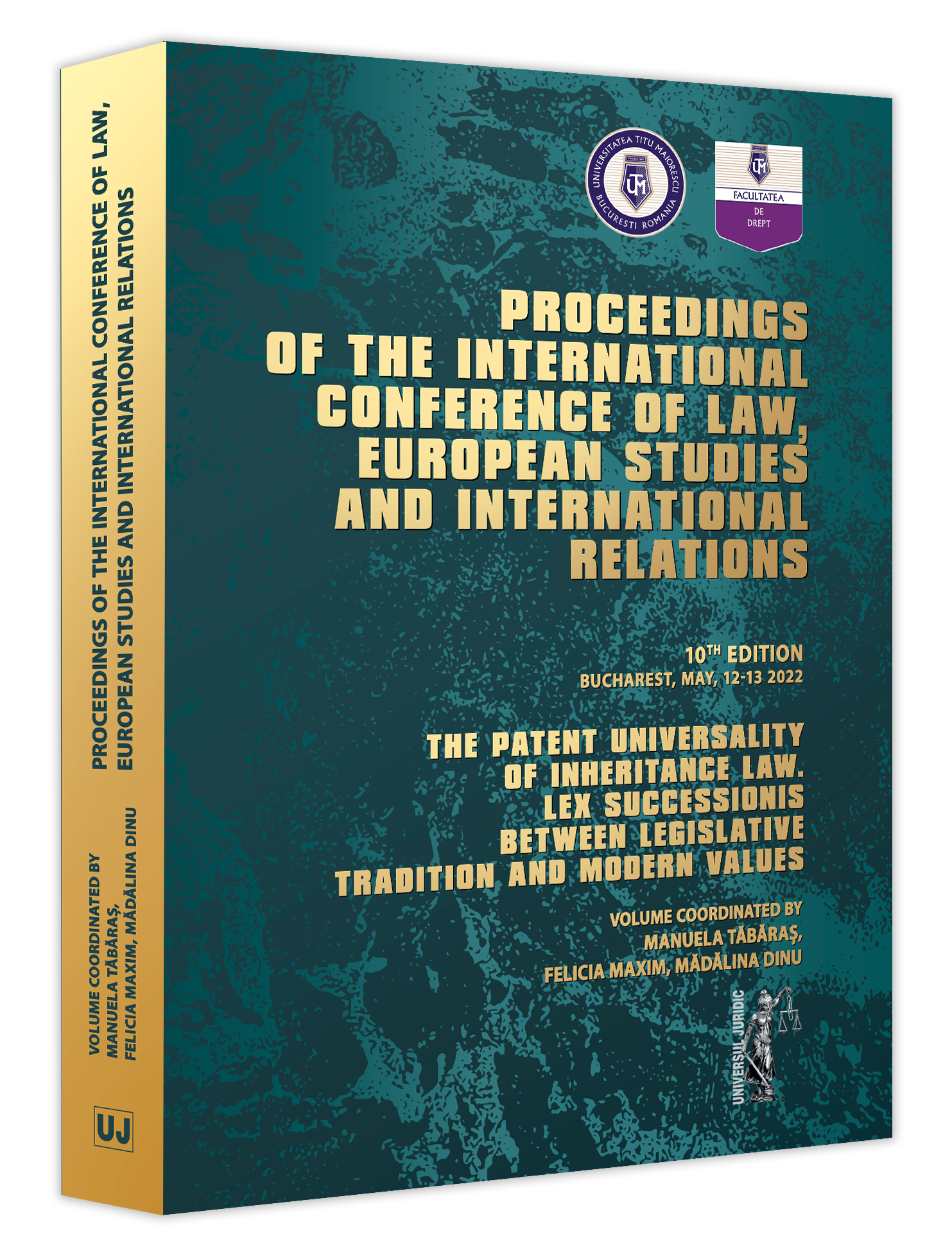THE CONCEPT OF HABITUAL RESIDENCE, AS THE MAIN CONNECTING FACTOR IN RESOLVING CONFLICTS OF LAWS AND JURISDICTIONS IN MATTERS OF CROSS-BORDER SUCCESSION, ACCORDING TO EU REGULATION NO. 650/2012
THE CONCEPT OF HABITUAL RESIDENCE, AS THE MAIN CONNECTING FACTOR IN RESOLVING CONFLICTS OF LAWS AND JURISDICTIONS IN MATTERS OF CROSS-BORDER SUCCESSION, ACCORDING TO EU REGULATION NO. 650/2012
Author(s): Carolina NițăSubject(s): Law, Constitution, Jurisprudence, Civil Law, EU-Legislation
Published by: Editura Hamangiu S.R.L.
Keywords: cross-border succession; the habitual residence of the deceased since the date of death; autonomous interpretation; complex situations; subsidiary linking criteria;
Summary/Abstract: By introducing the habitual residence of the deceased as a general connecting factor for the purpose of determining both international jurisdiction and applicable law, Regulation (EU) No 650/2012, aims to substantially simplify the settlement of cross-border successions in the Member States. The aim of this paper is to analyze the notion of habitual residence as a connecting factor in terms of succession, in relation to the objectives of the Regulation and the recent case law of the Court of Justice of the European Union. After a brief introduction of the regulation as a new tool in the field of judicial cooperation in civil matters, the paper focuses on the interpretation of the concept of habitual residence of the deceased under Regulation (EU) no. 650/2012, on the criteria for determining and evaluating the advantages of this notion, as the main connecting factor.
Journal: Conferința Internațională de Drept, Studii Europene și Relații Internaționale
- Issue Year: X/2022
- Issue No: X
- Page Range: 264-271
- Page Count: 8
- Language: English

